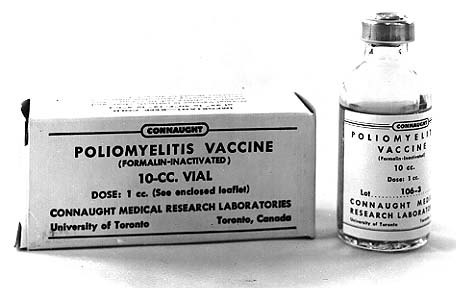VACCINES KILL: Study finds positive correlation between COVID-19 deaths, flu vaccination rates in elderly worldwide
11/03/2020 / By Ramon Tomey

An Oct. 1 study found a link between deaths from coronavirus infection and influenza vaccinations in older adults. The research published in PeerJ by Universidad Juarez del Estado de Durango professor Christian Wehenkel observed a “positive association between COVID-19 deaths and IVR (influenza vaccination rate) of people” above 65 years old.
Wehenkel analyzed data sets from 39 countries with more than 500,000 people to determine the link. The results of Wehenkel’s analysis did not appear to support earlier studies that showed getting the influenza jab could reduce the risk of dying from COVID-19. One such study by researcher Guenther Fink and his colleagues pointed out that “the innate immune response induced by recent vaccination could result in more rapid and efficient SARS-CoV-2 clearance,” preventing the virus from reaching deeper into the lower areas of the lung.
Another research Wehenkel cited in his paper talked about how flu vaccines fail to protect against other pathogens. A 2012 study by University of Hong Kong professor Benjamin Cowling and his colleagues suggested that being vaccinated against the flu may increase immunity against the influenza virus – at the expense of “reduced immunity to non-influenza respiratory viruses” such as SARS-CoV-2 by some unknown biological mechanism. Thus, people who have been vaccinated against the flu would be protected against it, but not against other pathogens due to reduced non-specific immunity in the weeks following vaccination.
A later study published in the journal Vaccine said getting vaccinated against the flu may actually increase the risk of coronavirus by as much as 36 percent due to what the study called “virus interference.” The paper by Greg G. Wolff studied influenza vaccination programs among Department of Defense personnel.
“Further exploration is needed to explain these findings, and additional work on this line of research may lead to prevention of deaths associated with COVID-19,” Wehenkel wrote. Two weeks after the study was published, PeerJ added a note on top of the paper emphasizing “correlation does not equal causation” and warning that the study “should not be taken to suggest that receiving the influenza vaccination results in an increased risk of death for an individual with COVID-19 as there may be confounding factors at play.”
The toxic adjuvants play a role in deaths following vaccination programs
Wehenkel’s paper also touched on adjuvants found in different vaccines such as the flu shot. He mentioned that “specific adjuvants in influenza vaccines should also be tested for adverse reactions” despite existing ones having a high level of safety. A 2015 study by Flinders University’s Nikolai Petrovsky published in Drug Safety tackled the potential dangers of some vaccine adjuvants – including aluminum salts – to “induce chronic immune activation and inflammation” that remain long after the vaccine is injected.
South Korea recently saw the dangers of flu vaccines after a number of people in the country died following seasonal flu vaccinations. A report by Yonhap News Agency said there were 48 flu vaccination deaths as of Oct. 24, including a 17-year-old boy and an elderly male from the southeastern city of Daegu. As a precautionary measure, the Singapore Ministry of Health ordered local health professionals to halt the use of two South Korean flu vaccines in the city-state. The victims received different brands of flu vaccines, two of which were available in Singapore.
Meanwhile, the African nation of South Sudan confirmed an outbreak of vaccine-derived polio in the country’s northwest. The outbreak came days after the World Health Organization declared that South Sudan already eradicated the wild poliovirus through vaccination efforts. However, the weakened virus in the oral polio vaccine administered to South Sudanese mutated and caused sickness instead of providing immunity against the wild pathogen. (Related: Instead of preventing the disease, polio vaccinations CAUSE polio.)
The incidents in South Korea and South Sudan are just two of many incidents outlining the danger of vaccines. Chemicals such as mercury, formalin and aluminum are commonly used to improve the immune response triggered by vaccines, but actually cause more harm than good. Some vaccines even contain proteins and cells obtained from aborted human fetuses so the body is more receptive of them.
Learn more about the dangers of vaccines against influenza and polio at VaccineDeaths.com.
Sources include:
Submit a correction >>
Tagged Under:
aborted baby parts, coronavirus vaccine, covid-19 pandemic, elderly immunization, Fetal cells, Flu shots, flu vaccination, human fetus proteins, mandatory vaccination, SARS-CoV-2, seasonal inoculation, senior citizens, toxic adjuvants, Vaccine deaths, vaccine injury, vaccine safety, vaccine wars, Wuhan coronavirus
This article may contain statements that reflect the opinion of the author
RECENT NEWS & ARTICLES
Infections.News is a fact-based public education website published by Infections News Features, LLC.
All content copyright © 2018 by Infections News Features, LLC.
Contact Us with Tips or Corrections
All trademarks, registered trademarks and servicemarks mentioned on this site are the property of their respective owners.





















